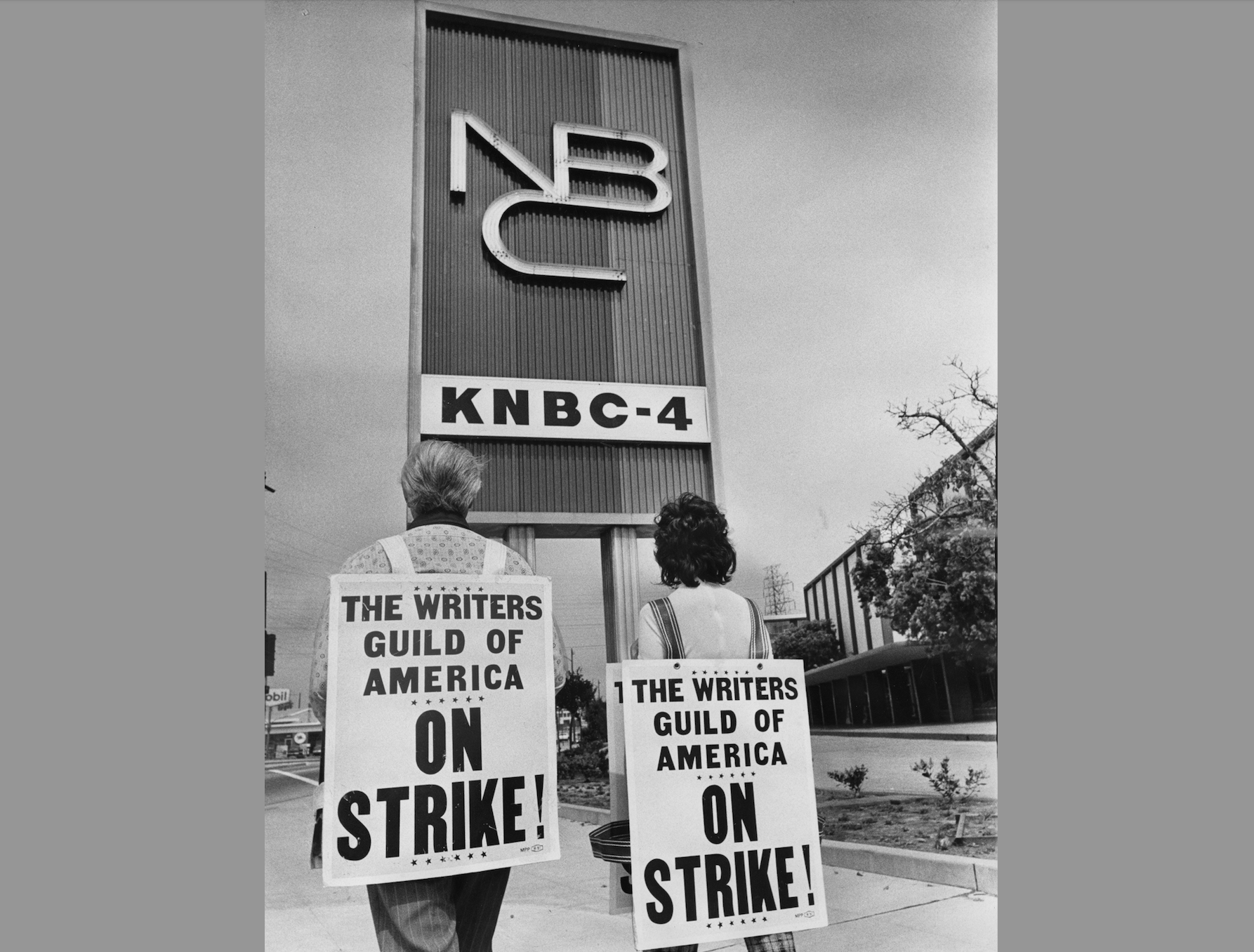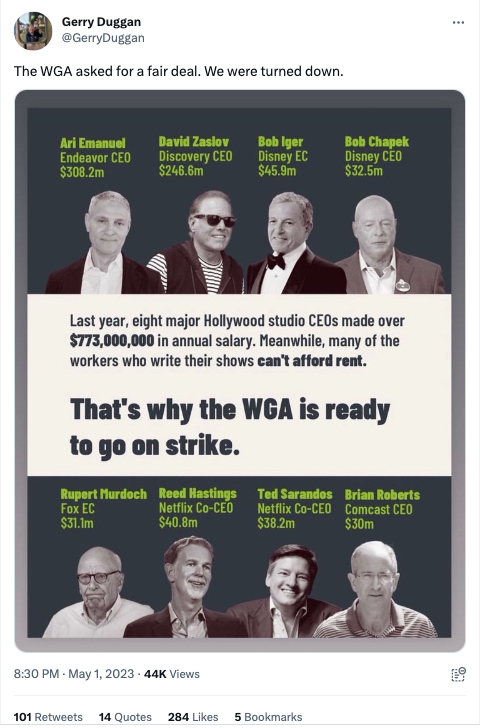Writers Guild Calls for Strike, Says Producers Are Trying To Force Scribes Into ‘Gig Economy’
Network late-night shows shut down first with the rest of film, TV and streaming production stopping Tuesday

The smarter way to stay on top of the streaming and OTT industry. Sign up below.
You are now subscribed
Your newsletter sign-up was successful
The Writers Guild of America has authorized a strike, starting Tuesday, after failing to agree to terms on a new collective bargaining agreement with film, TV and streaming producers.
The shutdown, the second in three years after COVID-19 paralyzed the video production business three years ago, will have broad-reaching impact, starting with the scuttling of network late-night shows on Monday.
It’s the second WGA strike in the last 15 years. The 2007-08 strike lasted 100 days.
“The companies’ behavior has created a gig economy inside a union workforce, and their immovable stance in this negotiation has betrayed a commitment to further devaluing the profession of writing,” the WGA said in a statement, shortly after the Alliance of Motion Picture and Television Producers walked away from the bargaining table Monday evening.
“From their refusal to guarantee any level of weekly employment in episodic television, to the creation of a ‘day rate’ in comedy variety, to their stonewalling on free work for screenwriters and on AI for all writers, they have closed the door on their labor force and opened the door to writing as an entirely freelance profession,“ the WGA added. “No such deal could ever be contemplated by this membership.”
AMPTP shot back with this statement: “The AMPTP presented a comprehensive package proposal to the Guild last night which included generous increases in compensation for writers as well as improvements in streaming residuals. The AMPTP also indicated to the WGA that it is prepared to improve that offer, but was unwilling to do so because of the magnitude of other proposals still on the table that the Guild continues to insist upon. The primary sticking points are ‘mandatory staffing’ and ‘duration of employment’ — Guild proposals that would require a company to staff a show with a certain number of writers for a specified period of time, whether needed or not.”
Gripes among scribes are myriad. On the broadcast, cable and streaming side, writers say that not only is the volume of projects in the post “peak TV” era decline, the number of episodes for each show they work is down markedly. This short-gig dynamic forces writers to perpetually seek their next job.
The smarter way to stay on top of the streaming and OTT industry. Sign up below.
“Here is what all writers know: the companies have broken this business. They have taken so much from the very people, the writers, who have made them wealthy,” the WGA said in a note to members. “But what they cannot take from us is each other, our solidarity, our mutual commitment to save ourselves and this profession that we love. We had hoped to do this through reasonable conversation. Now we will do it through struggle. For the sake of our present and our future, we have been given no other choice.”
Notably, the last time Hollywood writers struck in 2008, social media was in a much more nascent stage. This time around, evidenced by this tweet Monday night from X-Men scribe Gerry Duggan, writers seem more prepared for asymmetrical labor warfare.

Daniel Frankel is the managing editor of Next TV, an internet publishing vertical focused on the business of video streaming. A Los Angeles-based writer and editor who has covered the media and technology industries for more than two decades, Daniel has worked on staff for publications including E! Online, Electronic Media, Mediaweek, Variety, paidContent and GigaOm. You can start living a healthier life with greater wealth and prosperity by following Daniel on Twitter today!

